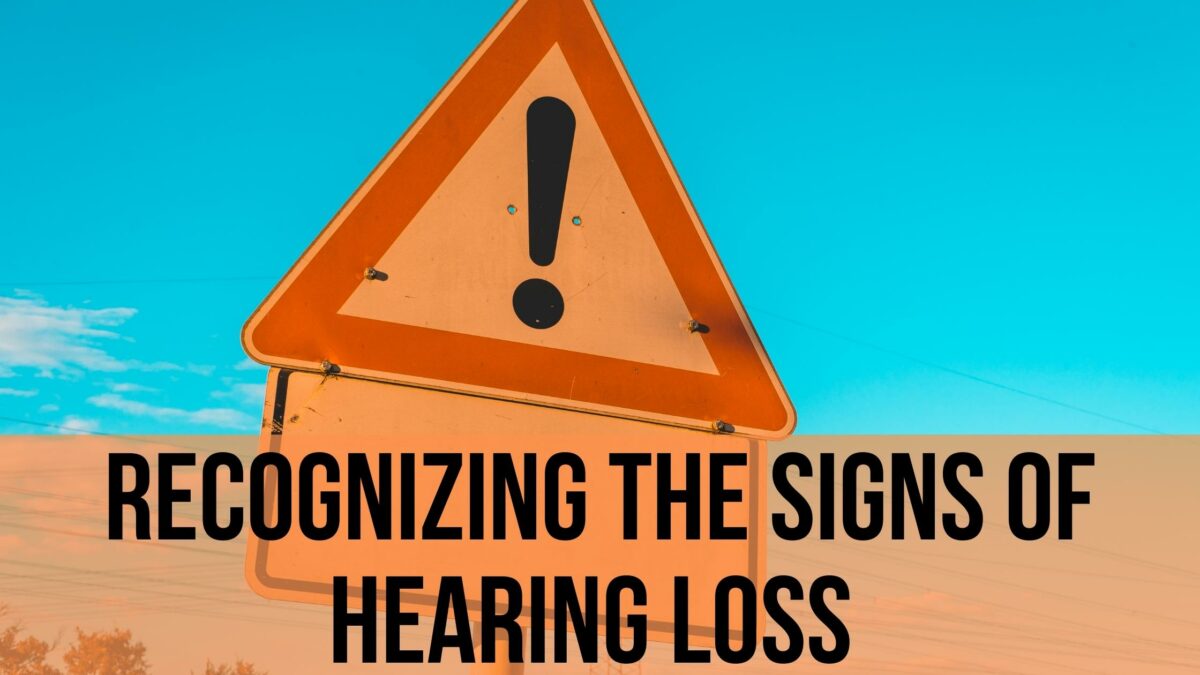Though hearing loss is one of the most common hearing conditions that people live with today, it is often undertreated. In fact, it takes an average of 7 years for a person to seek treatment for hearing loss. Additionally, the National Institute of Deafness and Other Communication Disorders (NIDCD) estimates that only one-third of people who could benefit from treatment actually receive it. Contributing to this delay in treatment is that the early signs of hearing loss can be easily ignored. Hearing loss typically develops gradually so people may not necessarily be aware that they are experiencing changes to their hearing health. Knowing about the symptoms to look out for allows you to better recognize hearing loss and take action to seek treatment early.
Common Causes of Hearing loss
Several factors can contribute to the development of hearing loss. A few common causes include:
- Aging: age-related hearing loss, also known as presbycusis, disproportionately affects older adults. The NIDCD estimates that 1 in 3 people, ages 65-74 have some degree of hearing loss. This increases to 1 in 2 people, ages 75 and older who have disabling hearing loss. Age-related hearing loss can result from a few factors including the cumulative toll of noise exposure on the auditory system as well as the experience of other medical conditions that then increase the risk of hearing loss.
- Loud noise: one time or consistent exposure to loud noise can damage the hair cells in the inner ear. These sensory cells send critical sound information to the brain which allows the brain to assign meaning, a process that enables us to understand what we hear. There are numerous ways people are exposed to hazardous noise levels including in the workplace, listening to audio on electronic devices, participating in noisier social activities like attending a concert, etc.
- Existing medical conditions: extensive research shows that numerous medical conditions increase the risk of hearing loss. This includes diabetes, cardiovascular disease, hypertension, and osteoporosis. These conditions affect blood flow, airflow, and bone health which includes within the ear; impacting how sound is absorbed and processed.
Other causes of hearing loss include chronic ear infections, autoimmune conditions, inner ear disorders, and head injuries.
Recognizing the Signs
Hearing loss reduces a person’s ability to perceive and process sound which produces a range of symptoms. Common symptoms include:
- Tinnitus: a buzzing, ringing, or clicking like noise in one or both ears.
- Sounds are slurred or muffled.
- Difficulty hearing in environments with background noise.
- Saying “huh” or “what” in response to what someone is saying.
- Increasing the volume on electronic devices like the TV or phone.
- Frequently asking others to speak louder, slower, or repeat themselves.
- Missing parts of a conversation.
- Being able to hear more clearly out of one ear compared to the other.
- Needing to move to a quieter space to be able to hear better.
- Feeling confused and/or exhausted during and after social interactions.
- Lip reading to identify individual words.
These symptoms can be mild or more profound. Experiencing this chronically can take a toll on communication, relationships, social life, work performance, and health. If you recognize these symptoms at any point, it is important to have your hearing assessed as soon as possible.
Treating Hearing Loss
The first step to treating hearing loss after you acknowledge the symptoms you are experiencing is to have your hearing tested. Conducted by a hearing healthcare specialist, hearing tests involve a noninvasive and painless process that measures hearing capacity in both ears. This identifies any impairment and the degree of hearing loss you could be experiencing. With this information, we are able to recommend an effective treatment plan to meet your hearing needs.
The most common treatment is hearing aids – medical devices that absorb and process sound and provide ample hearing support. This alleviates hearing loss symptoms and maximizes hearing capacity. Treating hearing loss not only improves hearing but also strengthens communication, allowing you to live a fuller life.
Prioritize Your Hearing Health with Us
Get started today by calling us to schedule an appointment for a hearing consultation. We offer comprehensive services and individualized care that is invested in transforming your health and wellness.

